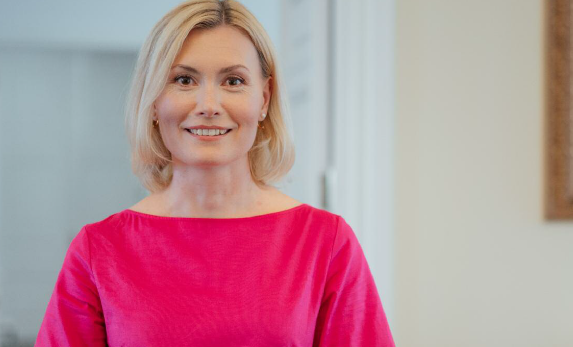Riina Sikkut, Minister of Health and Labour of the Republic of Estonia offer her thoughts on personalised medicine and how this is breaking down healthcare silos
Predicting disease before it occurs, and individually targeted treatment are the two tenets of personalised medicine, the next wave of healthcare innovation poised to revolutionise treatment efficacy and patient experience (Mathur & Sutton, 2017). Estonia is taking this innovation one step further by implementing personalised medicine into the primary care system, with a strong focus on prevention, while most other countries are using it in the treatment of cancer and rare diseases.
Estonian personalised medicine is as much about scientific progress and discovery, as it is about technological innovation and patient-centred healthcare. Estonia is currently delivering the national personalised medicine strategy of 2016-2020, which aims to deliver personalised health recommendations to 500,000 Estonian gene donors, target 160,000 women at high risk for breast cancer with personalised screening and reach 200,000 people with high risk of ischemic heart disease to prevent the more serious disease impact. This initiative will be accomplished with the help of the Estonian Genome Centre, a global leader in genomic science with two decades of experience.
Known as the most digitally-advanced society in the world (Forbes, 2018), Estonia is true to form in the technological and entrepreneurial goals of the personalised medicine strategy and plans to develop a comprehensive IT infrastructure connecting the digital health records, patient portal, health insurance data and the clinical software interfacing health professionals. The first use case of this platform will be in the area of pharmacogenomics, where Estonian gene donors will receive personalised feedback on the suitability of potential medication, supporting health professionals in their prescription decision-making.
Such a comprehensive development of the digital health system in Estonia and the addition of genomic science into clinical practice requires buy-in from key stakeholders such as health care professionals, health policymakers and the scientific community, as well as
strong interdisciplinary collaboration. The Estonian Government has initiated a partnership between organisations representing all key stakeholders to ensure the potential of personalised medicine is successfully executed and implemented in the healthcare
system and provides true value for all of its users. The partnership connects the Estonian Genome Centre, Department of Computer Science at the University of Tartu, Social Ministry, Health Insurance Fund, Health and Wellbeing Technical Competence Centre, National Institute for Health Development, Clinical Guidelines Committee, the clinical community and patient interest groups. The interdisciplinary nature of personalised medicine is a prime opportunity for starting to break down the traditional silos of healthcare and arrive at a holistic approach that takes the whole human into account throughout the lifecycle.
Ultimately, Estonian personalised medicine is driven by patient-centrality and transforming the healthcare system into a preventative rather than a curative one. From a digital innovation perspective, patient-centrality demands a strong focus on usability, which the Estonian government is supporting in partnership with Norway Grants and the technology start-up community. On October 15th, 2018, the first funding call was announced for start-ups to build products and services in personalised medicine. The focus is on co-designing with the end-user, to ensure optimal usability and buy-in from the end-users. There is an opportunity to build for health professionals, as well as patients within the scope of this funding and interest has been high from the start-up community in Estonia and abroad.
Involving private sector stakeholders is another route to breaking down silos in the healthcare system.
Personalised medicine is an opportunity for tackling the global concerns of chronic disease, ageing populations and rising healthcare costs. It has the potential to deliver health information tailored to each patient at any given point in their lifecycle, thus empowering each individual to assess, track and intervene in their own health and disease experience. Estonia is committed to realising this potential and improving the health and wellbeing of its citizens.
Riina Sikkut
Minister of Health and Labour of the Republic of Estonia
The Ministry of Social Affairs of Estonia
info@sm.ee
www.sm.ee/en
www.twitter.com/SoMinEstonia











